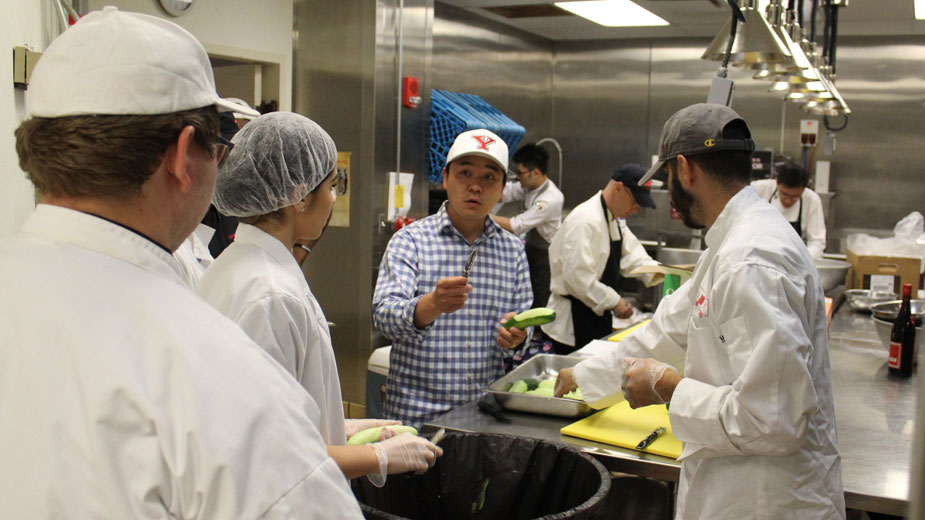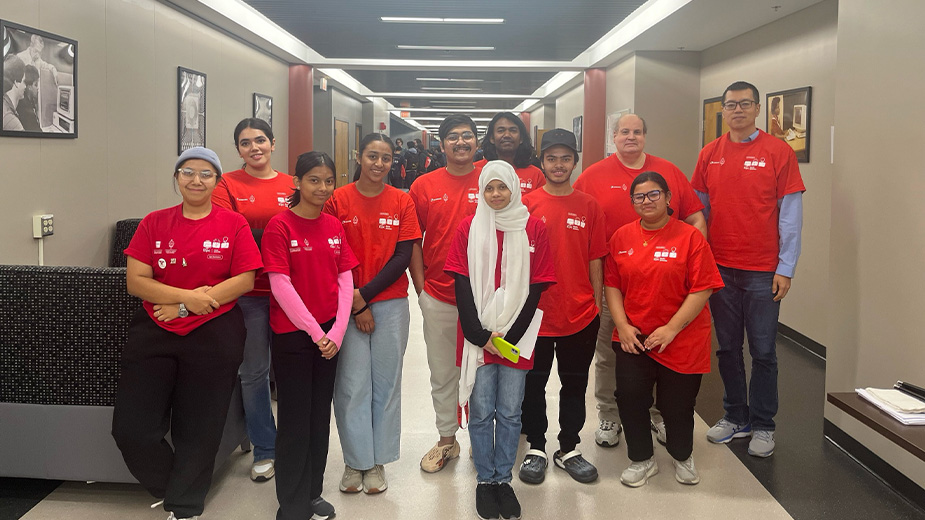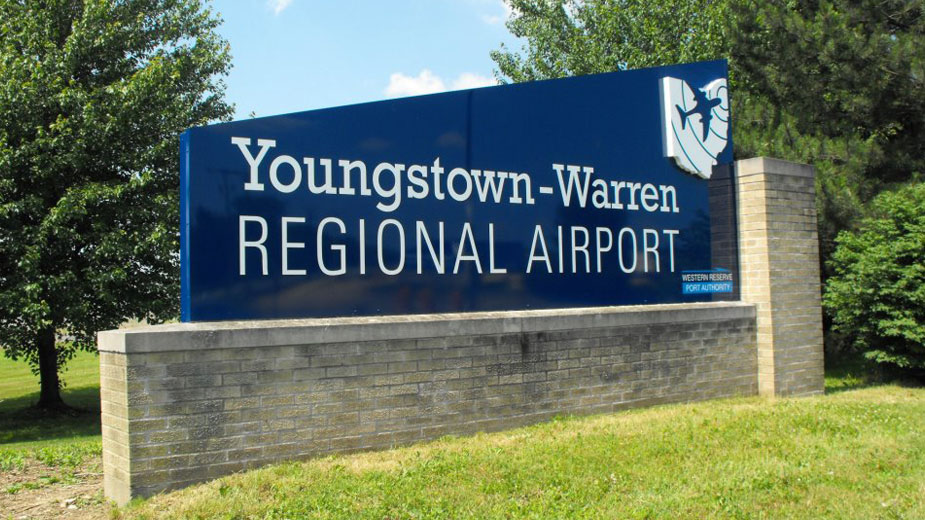Art of Hospitality Taught at YSU
YOUNGSTOWN, Ohio – As two world-renowned chefs from Taiwan worked just a few feet away, students in the hospitality management program at Youngstown State University did their part to help prepare a meal that would, in a few hours, be served as part of a fundraiser dinner.
But it wasn’t just preparing the meal, including crispy prawns with wasabi mayo and fresh mango pudding, that students were handling. They helped set up the tables, serve the meal and, perhaps most important, welcome attendees. With a career in the hospitality industry just a few years away, the students were learning the basics of a job focused on customer service.
“You work hard and you want to get refreshed and rejuvenated. It’s really precious time for people. If the hospitality industry only provided service, and not hospitality, you wouldn’t feel like royalty. We boost and maximize your experiences,” says professor Jay Lee, one of the instructors in the program. “If we produce good, quality people, you’re going to have a better chance of enjoying your trip, enjoying your meal, enjoying your meeting.”
At the core of the YSU program is that premise. While the curriculum includes classes that cover technical skills – courses include “front-office operations,” “hospitality law & ethics” and “microeconomics” – the heart of it is the soft skills taught from Day One.
The “introduction to hospitality industry” course, the first course in hospitality management students take, starts every day with Lee greeting students until they respond with a smile, he says. That sets the tone for their coming years, whether at YSU or as a professional.
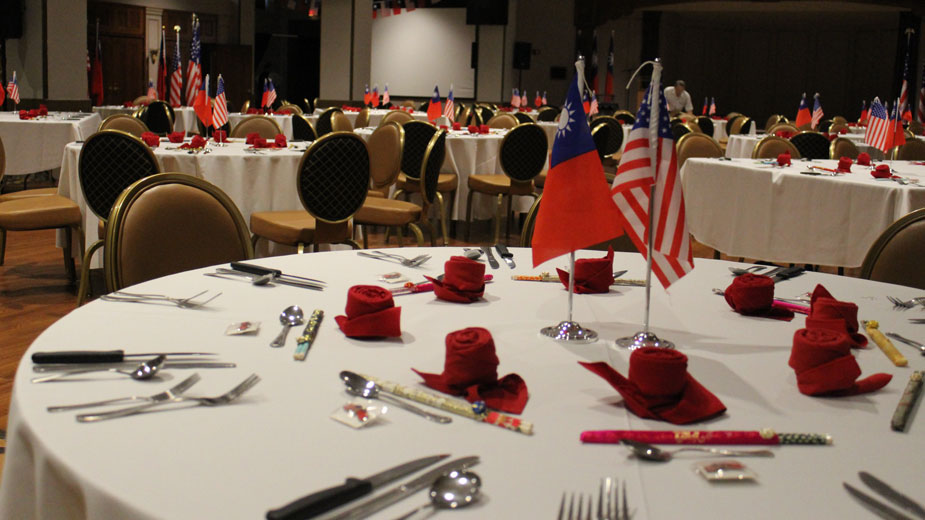
“You can’t change your attitude in one day. You have to keep training. You have to have the sharing culture in your mind,” he says. “As we build that culture with freshmen, later on, when we meet, they automatically smile.”
The program, offering an associate degree and a baccalaureate, features three tracks that students may choose from: event management, food and beverage, and lodging. In the event management track, for example, courses include “business computer systems,” “hospitality marketing and sales,” and the senior-level “event management.”
“They should be organized for their dates, times, schedules. If you have 100 people at a meeting and someone is vegetarian or has a gluten allergy or has religious things, they have to understand that,” Lee says of what the track teaches. “If people have different meetings, how do you assign those rooms? We teach how to design events.”
Like the industry they’ll be entering, there’s overlap between each track. Event management isn’t just ensuring rooms are booked for a conference. Professionals must consider where guests will be staying, what they’ll eat during the conference and what they’ll do in their free time.
“To be a good event manager, it’s all related together,” Lee says. “We don’t teach culinary, but they have to understand how to prepare food without cross-contamination, with good presentation. They have to understand the basic process: how it’s done, how long it takes to make, the assembly time.”
Students – 10 in the associate program and 80 in the baccalaureate – must also gain real-world experience before they graduate. A 300-hour work co-op is required for the associate degree, while the bachelor’s program adds a 300-hour internship as well. With the co-op recommended to be taken in their sophomore year, it can help students decide which track they want to pursue.
“They have to come back and share it with their class, so they get to understand what happens at different types of properties. It can encourage them to try another track,” says Mark Zetts, who teaches the hospitality-management courses alongside Lee.
Locally, students have completed their co-ops at The Lake Club, The Avalon Inn, Stambaugh Auditorium, Youngstown Country Club and the DoubleTree by Hilton Youngstown Downtown.
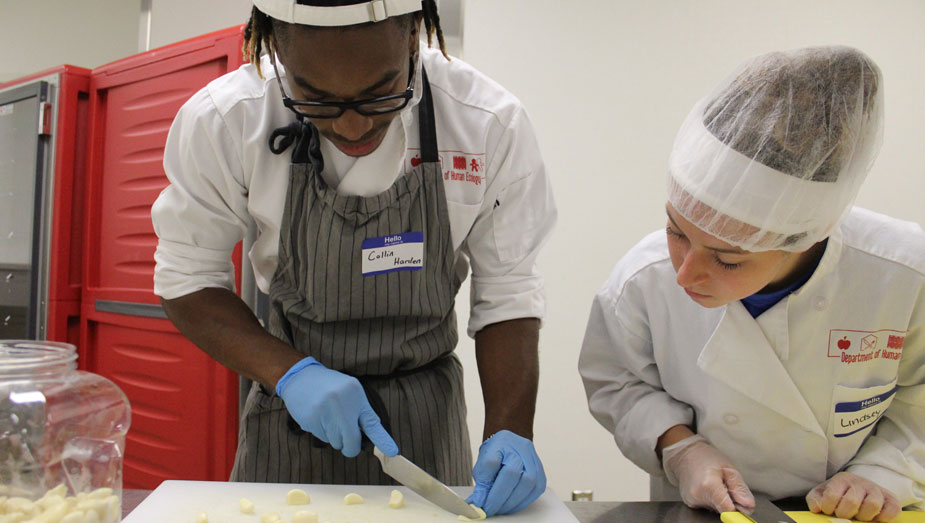
For internships, required for the baccalaureate program, students have worked at Disney resorts through the Disney College Program and traveled as far as Japan.
“There’s work experience in the industry, so they pick up the practical knowledge of the field, but then we apply the training for front-desk operations and the hotel side.” Zetts says. “We have an events class that teaches the basics of how to organize events. We have several food classes because we work with the food and nutrition department.”
Before taking a teaching position at Youngstown State, Zetts was the director of food service at the university through Aramark. With nearly 25 years of industry experience, he knows well what kinds of jobs are available for students. The industry is constantly churning, he says, and well-trained workers are always in demand.
“You have to have a lot of business. …. If they don’t, they might leave for another property. You’re constantly chasing good employees and good managers,” he says. “That’s why opportunities are so high for our students once they get out.”
Lee says a majority of his students, about three-quarters by his estimation, find work in the hospitality industry after graduating. Some may find themselves working at front desks or back-end jobs such as sales. Some may work in kitchens or at NFL stadiums. Others may find jobs outside the industry.
Because of the diverse range of classes students must take – accounting, marketing, law and more – they have the basic skills to find work in many fields. One graduate is working at an insurance company, Lee reports, while others have taken jobs in sales.
“There are event-space managers like you’d find at Stambaugh [Auditorium]. There are executive chefs,” Zetts says. “On the restaurant side, they’ll start as supervisors and move through the management-training program and become leaders or managers at other properties. There are sales opportunities. We have several who’ve started in the event spaces and gone into the back-end.”
Pictured: Hospitality management professor Jay Lee, center, says the program’s three tracks – lodging, food and beverage, and event management – often overlap.
Copyright 2024 The Business Journal, Youngstown, Ohio.
